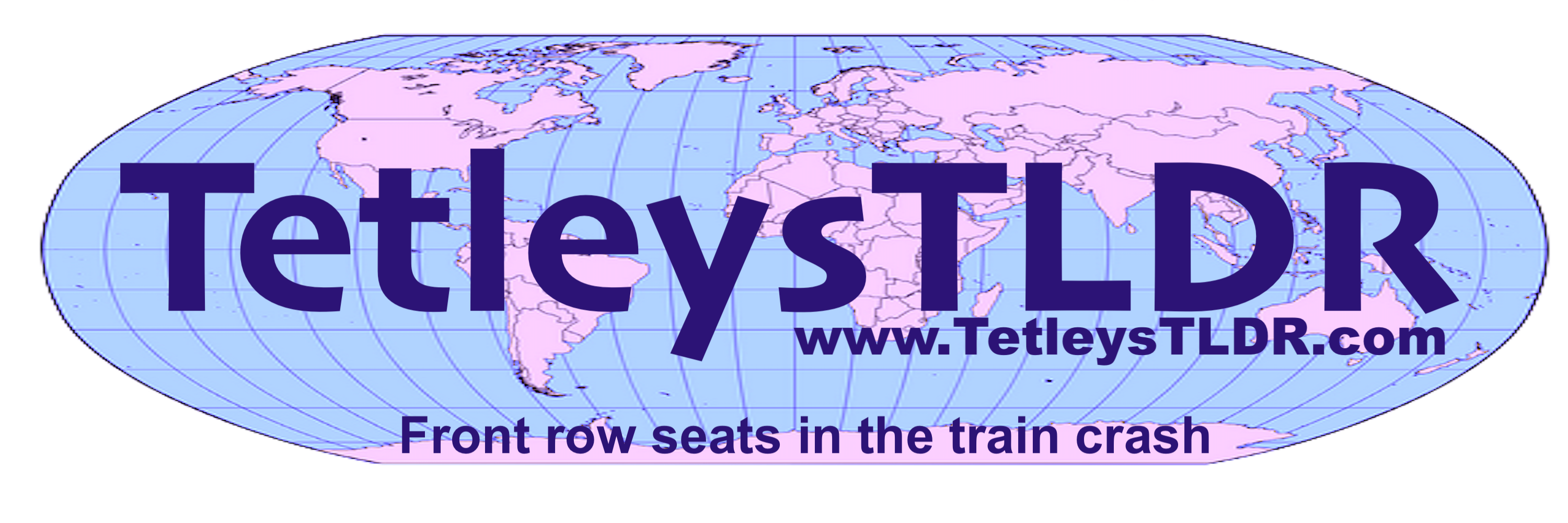United Hates of America: No justice for Greenpeace
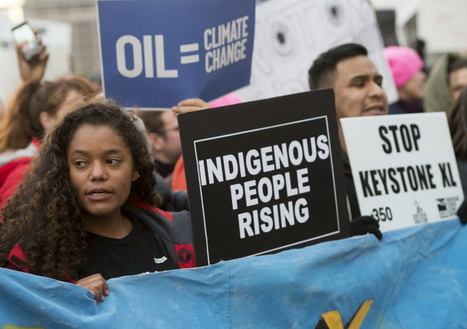
In a landmark case in the US. Greenpeace have just lost a lost a case in North Dakota. As a result, Greenpeace has been railroaded into paying $660 million in damages. Their crime? Daring to stand in solidarity with the Standing Rock Sioux Tribe against the Dakota Access Pipeline (DAPL) in 2016-2017. Drunig these protests, which were led by First Nations people defending their sacred land and water, the protesters were met with brutal repression, mass arrests, and now, a kangaroo court verdict pinning responsibility for it all on Greenpeace. (The Guardian)
For those of you that are unfamiliar with the work of Greenpeace, it is a global environmental organization dedicated to protecting the planet from threats such as climate change, deforestation, pollution, and overfishing. Founded in 1971, Greenpeace is known for its bold direct action, scientific research, and advocacy efforts aimed at holding governments and corporations accountable. Whether it's campaigning against fossil fuels, defending endangered wildlife, or promoting sustainable solutions, Greenpeace remains at the forefront of the fight for a greener, more just world.
In a farcical lawsuit brought by Energy Transfer Partners, Greenpeace was accused of defamation, trespass, nuisance, and civil conspiracy, essentially being blamed for a mass movement it neither organised nor controlled. The jury in Mandan, North Dakota: an oil-soaked backwater where Big Energy calls the shots, delivered the obscene ruling after a three-week trial. The charge? Running a “misinformation campaign” that allegedly cost Energy Transfer millions. The reality? Exposing the pipeline’s threats to Indigenous land, water, and climate stability. (CNN)
Grrenpeace has long been a thorn in the side of the fossil fuel loby. In this ruling, they effectively have effectively Greenpeace out of business
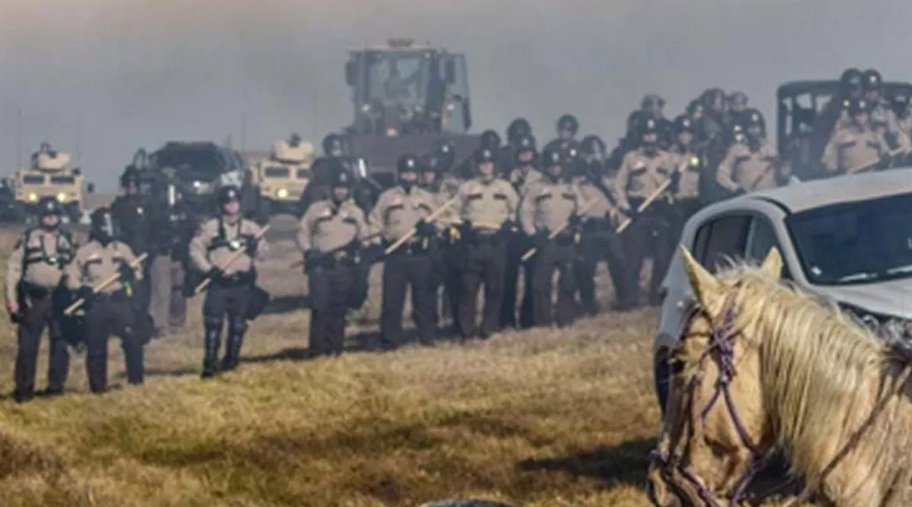
In the 2016-2017 protests against the Dakota Access Pipeline (DAPL), thousands of Indigenous water protectors and allies gathered near the Standing Rock Sioux Reservation to oppose the pipeline's construction, citing threats to sacred lands and water sources. These peaceful demonstrations were met with a militarized police response, including the use of rubber bullets, tear gas, and water cannons in freezing temperatures, leading to numerous injuries and arrests among protesters. Law enforcement agencies and certain media outlets further attempted to delegitimize the movement by labeling activists as 'agitators' and accusing them of inciting violence, despite substantial evidence of the protests' nonviolent nature.
https://en.wikipedia.org/wiki/Dakota_Access_Pipeline_protests
Greenpeace's involvement in the DAPL protests was supportive but not central. The Standing Rock Sioux Tribe led the demonstrations, with Greenpeace providing assistance at their request. According to Annie Leonard, former executive director of Greenpeace USA, the organisation contributed resources such as a solar-powered truck for charging phones and funded nonviolent direct action training to help maintain the peaceful nature of the protests. Leonard emphasized that Greenpeace's role was to support the Indigenous-led movement without overshadowing it. Nick Tilsen, an Oglala Sioux Tribe activist, noted that most tribal nations involved 'didn't know who Greenpeace was,' highlighting the organization's secondary role. Greenpeace has consistently maintained that it did not condone or engage in any violent activities during the protests.North Dakota MonitorJamestown Sun
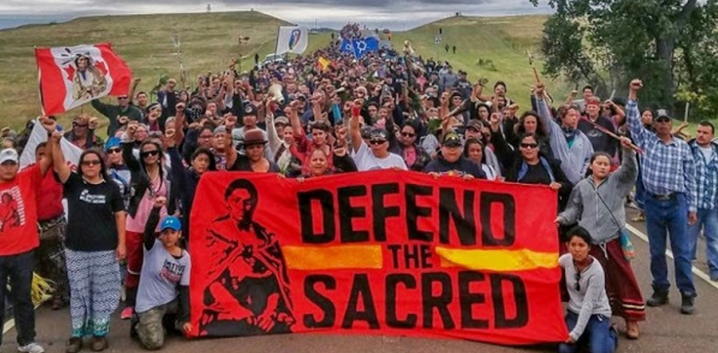
The protests at Standing Rock saw thousands of Indigenous water protectors and allies peacefully resisting DAPL’s construction. Their reward? Militarised police violence, illegal surveillance, and over 800 arrests, including journalists simply documenting the abuse. Native Americans have always been treated as a nuisance by the U.S. government, their sovereignty disregarded whenever it conflicts with corporate profit. The justice system’s historical hostility towards First Nations people made this ruling inevitable—because in America, land thieves don’t just win, they get to silence those who expose them. (The Guardian)
The U.S. is in the grip of a full-blown anti-climate backlash, fuelled by fossil fuel lobbyists and reactionary politicians who see environmentalism as a leftist enemy. Republican-led states are passing draconian laws against protest, and the Supreme Court is gutting climate protections. This is entirely down to the Trump/MAGA shift in US politics: an administration that pandered to Big Oil at every turn, stacking courts with pro-corporate judges who now rubber-stamp lawsuits like this. The crackdown on Greenpeace is part of a wider war on climate activism, criminalising protest while fossil fuel executives rake in record profits. (The Guardian)
This ruling is exactly on point with the current regime in America. By holding Greenpeace vicariously liable for the actions of independent protesters, the court has set a terrifying precedent. It means any organisation supporting a cause can be financially destroyed, even if they had no direct involvement in civil disobedience. This is about crushing dissent and ensuring corporations can bulldoze through opposition without consequence. It’s a calculated attack on activism, designed to terrify environmental groups into silence. (The Guardian)
This verdict is an indictment of a justice system that serves only power. It’s not about law; it’s about crushing opposition to fossil fuels. Greenpeace stood with First Nations people against environmental destruction, and for that, they’ve been bankrupted. It’s a grotesque parody of justice, a corporate hit job dressed up as a legal proceeding.
The fight isn’t over, Greenpeace will appeal, and those who care about justice and the planet must rally against this blatant assault on free speech, protest, and climate action. They neeed to appeal because this ruling will finish them. (The Guardian)

Governments and the media are quick to attack Greenpeace, but they have been instrumental in major environmental campaigns. Here are some key successes achieved by Greenpeace:
- Stopping U.S. Nuclear Testing (1972): Greenpeace's first major action helped halt nuclear testing on Amchitka Island, Alaska.
- Ending France’s Atmospheric Nuclear Tests (1975): Persistent protests led France to cease atmospheric nuclear testing in the Pacific.
- Commercial Whaling Moratorium (1982): Greenpeace’s campaigns contributed to the International Whaling Commission's global ban on commercial whaling.
- Protecting the Ozone Layer (1990s): Greenpeace developed “Greenfreeze” technology, leading to the phase-out of ozone-depleting CFCs in refrigeration.
- Brent Spar Oil Rig Victory (1995): Protests forced Shell to abandon plans to dump the Brent Spar oil platform into the North Sea, leading to improved decommissioning practices.
- Amazon and Forest Protection (2000s–Present): Pressured companies like McDonald's and Nestlé to commit to deforestation-free supply chains.
- Great Bear Rainforest Agreement (2006): Helped secure protections for a vast temperate rainforest in Canada through negotiations with logging companies.
- Detox Fashion Campaign (2011): Exposed hazardous chemical pollution in fashion supply chains, leading to commitments from major brands to eliminate toxic discharges.
- Protecting Antarctica (1991): Helped secure a 50-year ban on mining through the Madrid Protocol, preserving the continent as a protected reserve.
- Stopping Arctic Oil Drilling (2010s–Present): Successfully pressured oil companies like Shell to halt Arctic drilling plans.
- Deep-Sea Mining Moratorium (2020s): Led global efforts to pause deep-sea mining, citing ecological concerns.
Greenpeace continues to challenge environmental destruction and push for systemic change across industries and governments.
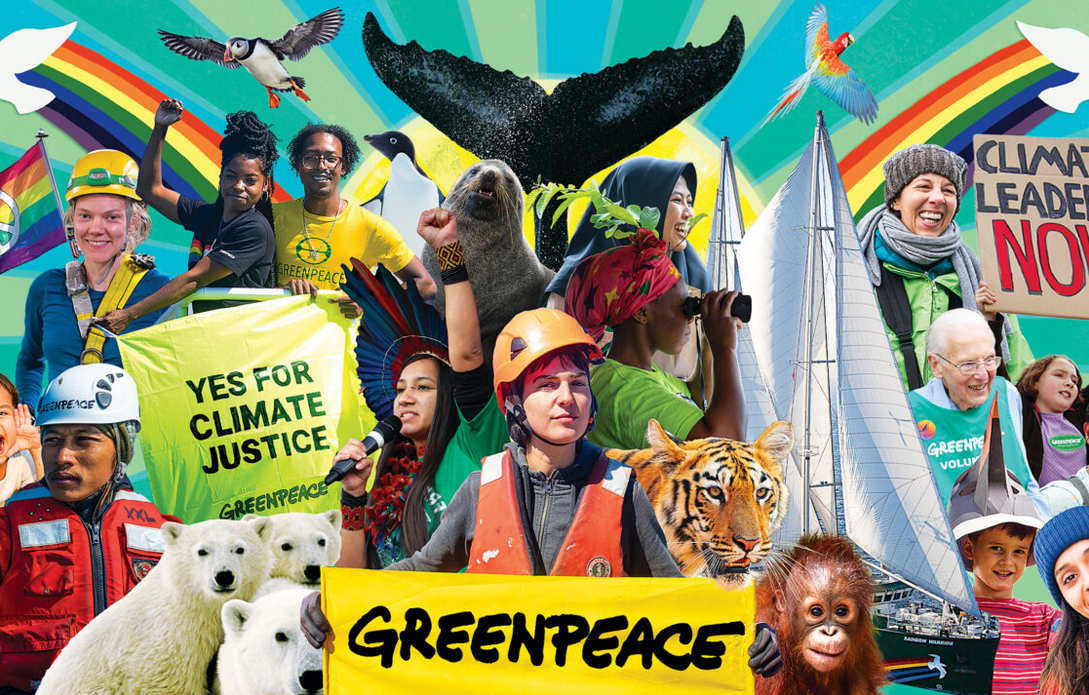
The world has gone mad. If you enjoyed reading this, please feel free to look at the rest of the blogs on www.TetleysTLDR.com. They're free to view, there's no paywall, they aren't monetised and I won't ask you to buy me a coffee. Also please free to share anything you find of interest, we only get the message out if people are aware of it. Just a leftie, standing in front of another leftie, asking to be read. All the best, Tetley
